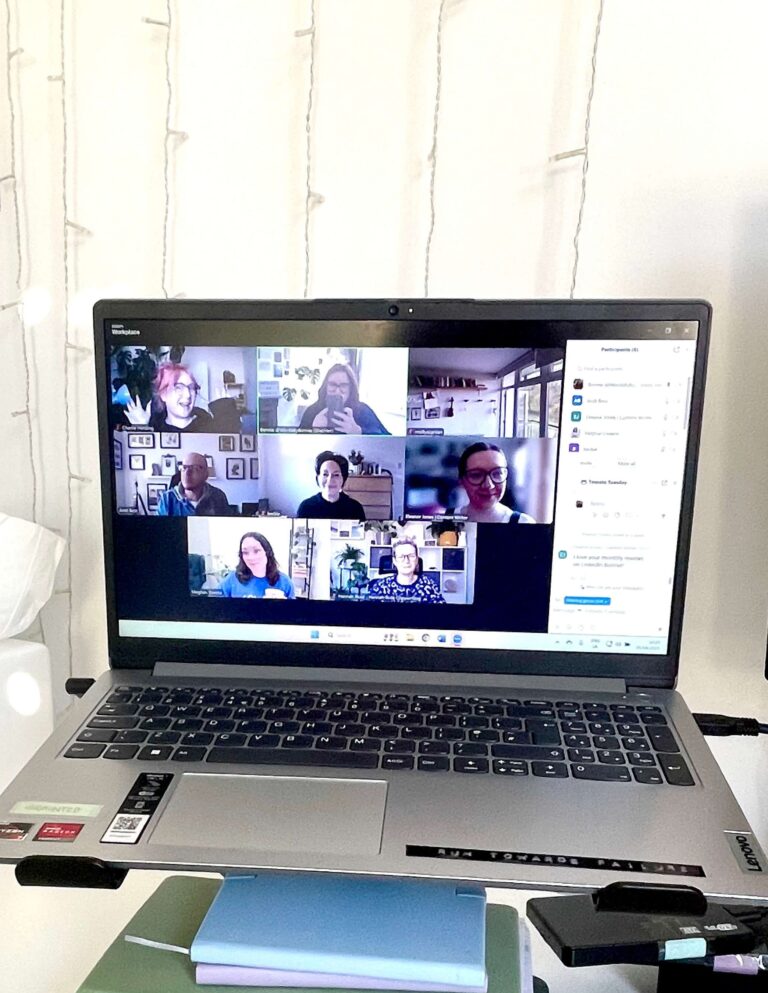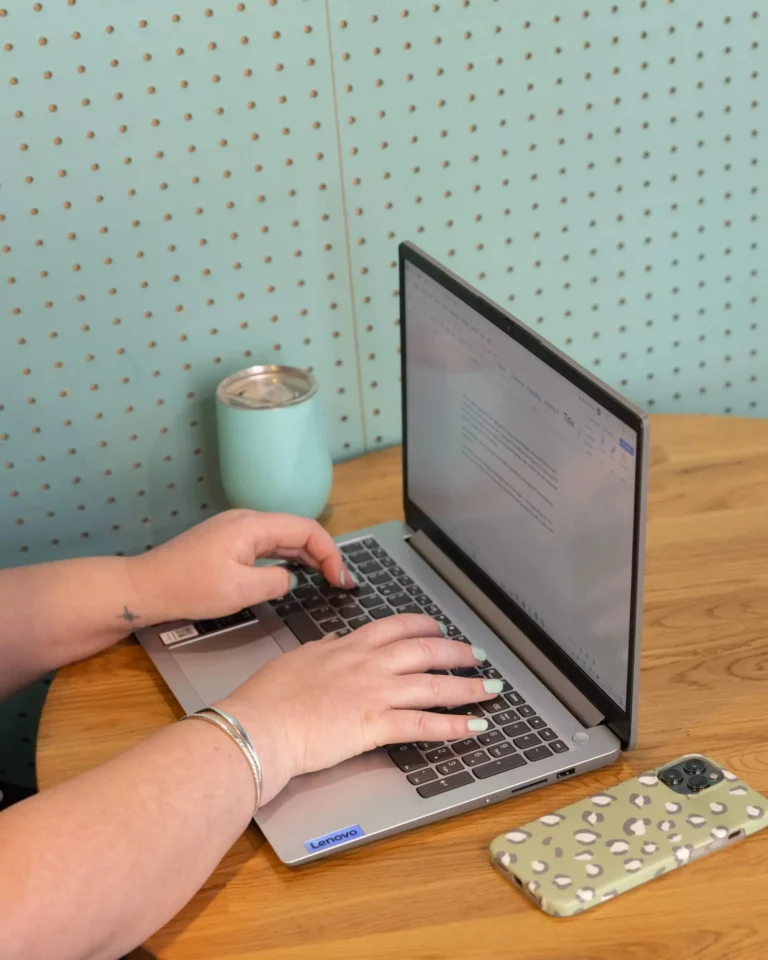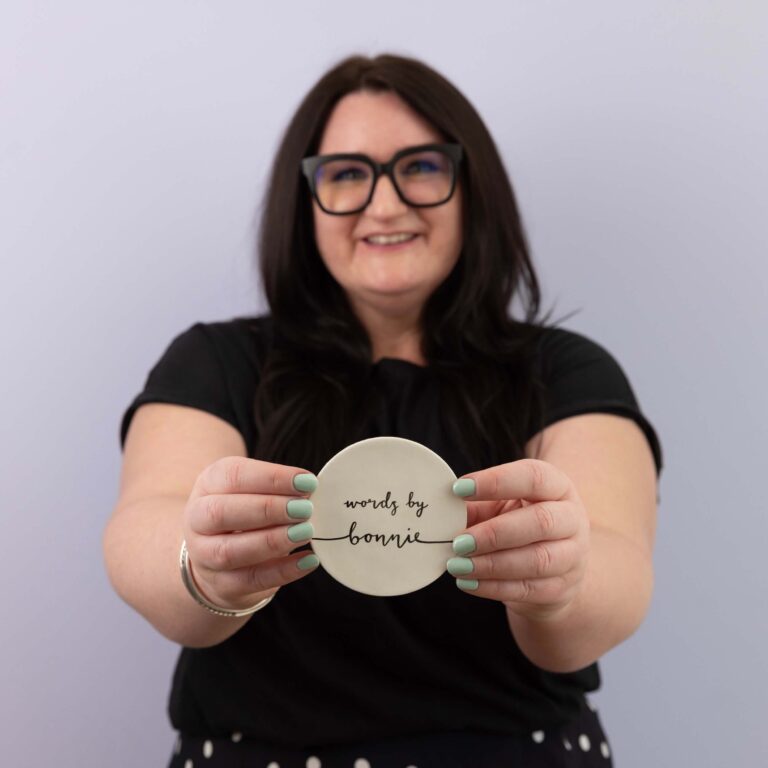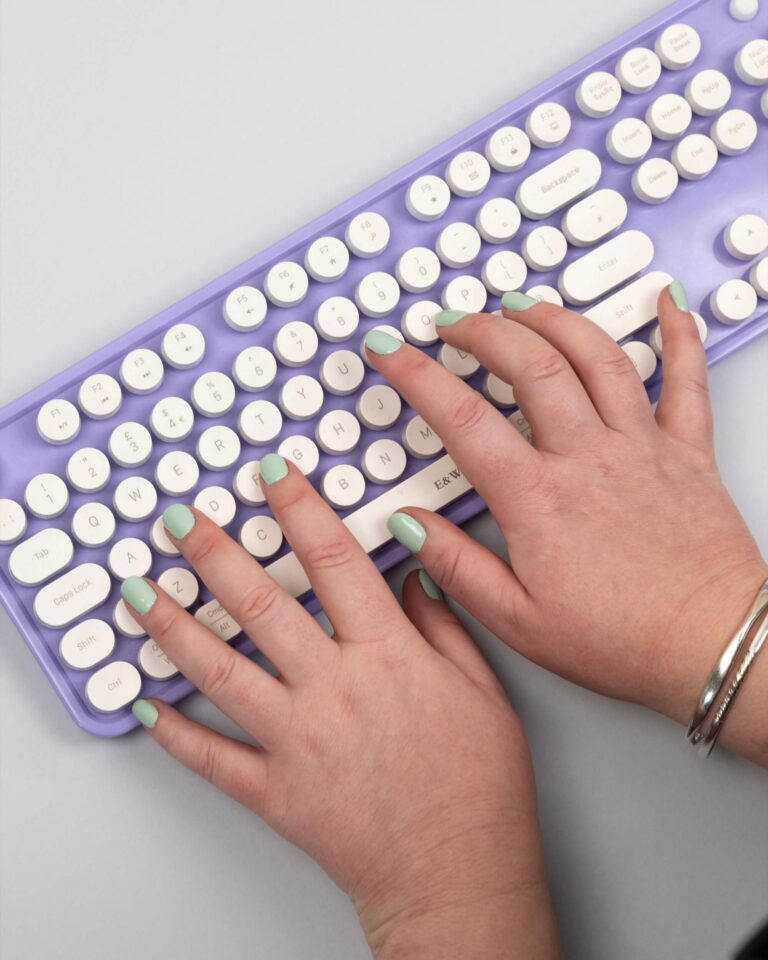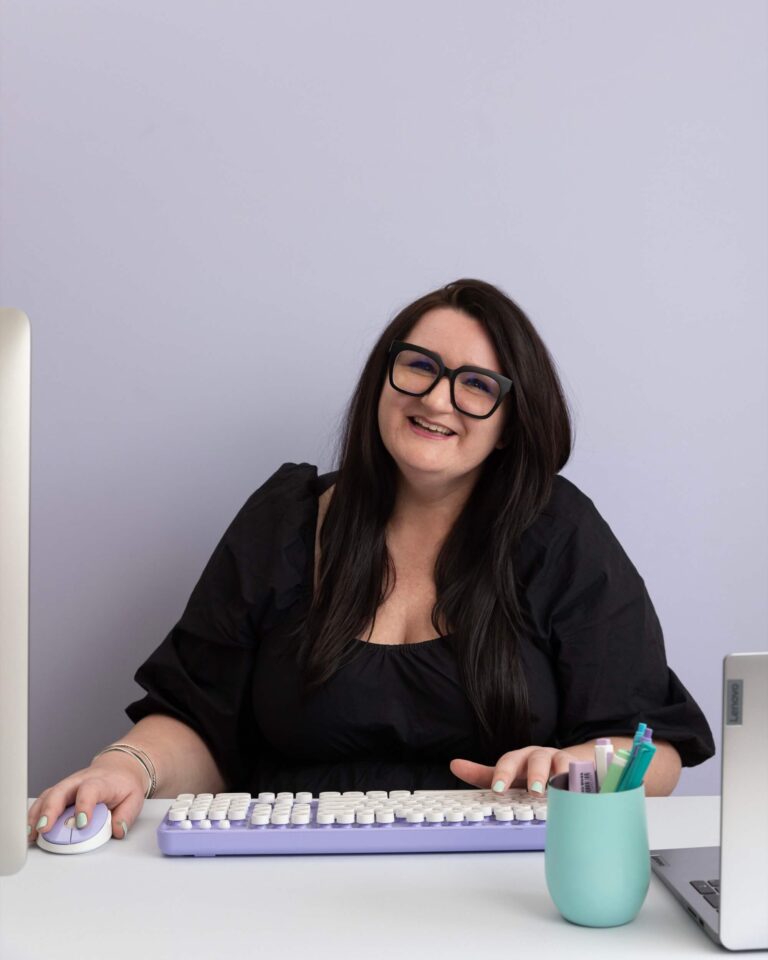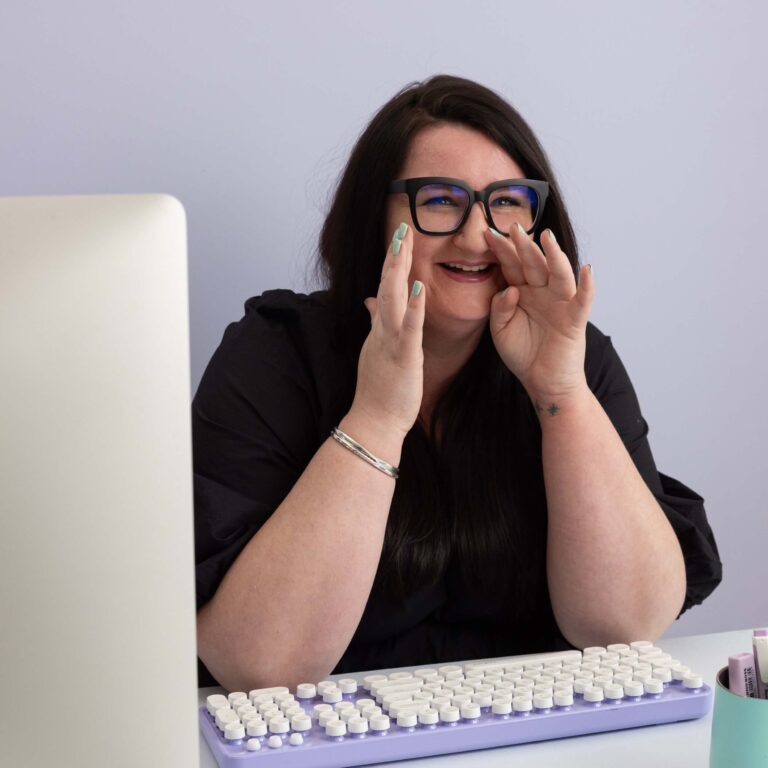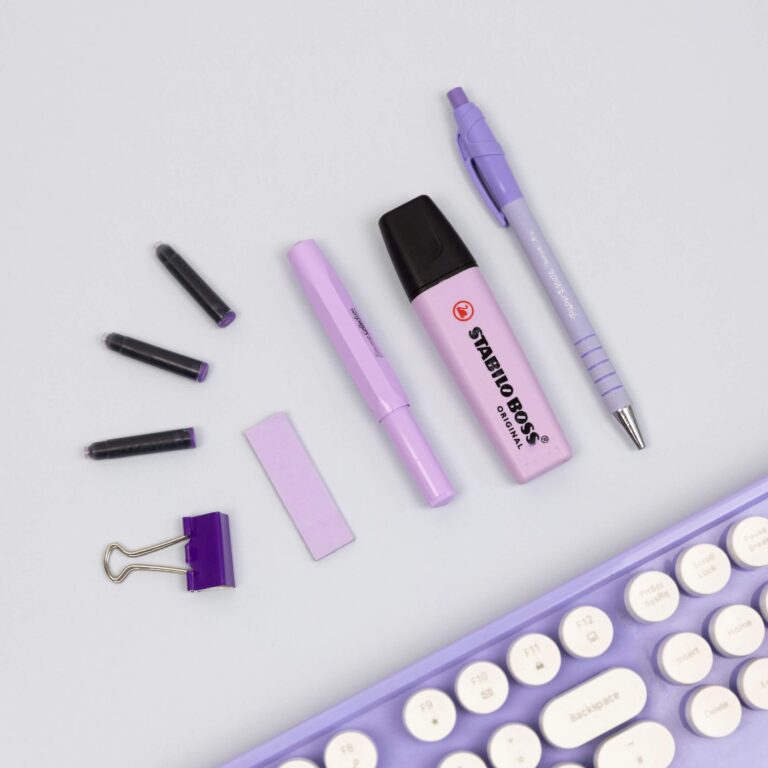We’ve all seen enough sci- fi movies to be scared of AI (I’m lookin’ at you I, Robot) but it’s pretty clear it’s not going anywhere.
Alexa and Siri are staples in most homes (not mine. Remember I, Robot?), there’s facial recognition software on your phone, customer service chat bots, and automatic subtitles on videos.
These are all mostly helpful to small business owners, because the AI deals with smaller, admin related tasks. All fine and dandy, kinda.
Where I think AI completely fails is when human creativity is needed. Writing and art. (Also driving. I don’t know enough about self- driving cars to comment really. But I do know I would not get in one. Again, for reasons related to I, Robot).
Whenever AI is tasked with creating an image it seems to mess up hands or resort to icky beauty standards. And, when ChatGPT is tasked with creating something linguistically beautiful it resorts to clichés, or stereotypes, or straight- up- lies.
Strap in folks, here’s everything this copywriter thinks you need to know about ChatGPT.
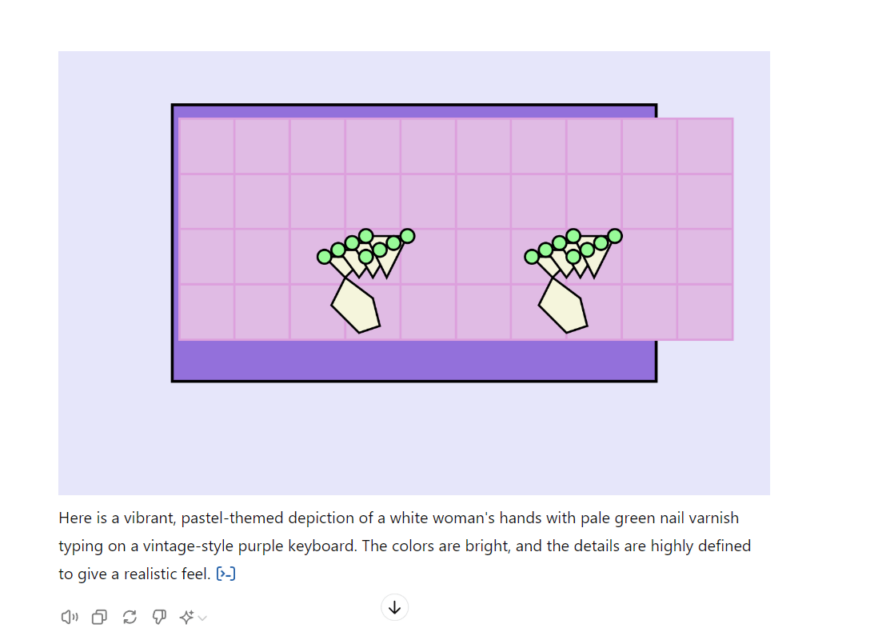
Why’s everyone talking about ChatGPT?
The ‘GPT’ part of ChatGPT stands for Generative Pre-Trained Transformer.
ChatGPT generates text based on a prompt from a human. It can produce product descriptions, blogs, social media captions, reports, translations, and even poems. Despite the varied types of writing, they all seem to have one thing in common: extremely questionable quality.
Since ChatGPT bashed its way into everyone’s consciousness in 2022, it’s been positioned as a time- saving, money- saving, energy- saving miracle.
(Spoiler alert: it’s none of these things.)
- It was immediately popular: “within five days of its introduction, more than one million users had signed up for a free account to interact with ChatGPT.”
- It was immediately impressive: “With these small tweaks, ChatGPT’s effort was already significantly better than most first drafts I come across”.
Old teacher pals call me, worried I’d just changed careers into a dying industry. Other chunky- glasses- wearing- creatives questioned each other at networking events about “the future”. I saw a terrifying spike of truly terrible LinkedIn posts.
Once the novelty of the shiny new content factory had worn off, concerns began to emerge.
ChatGPT creates lots of different texts by using what already exists on the internet. It works on probability. The words it puts next to each other in a sentence are the most likely order of words. Perhaps most impressively, it can put hundreds of words together in seconds.
The free version of ChatGPT is based on data collection that finished in early 2022, so all its research and knowledge stops there.
As you already know, the internet is full of misinformation, bias, and straight- up discrimination. ChatGPT has no way of measuring or judging the quality of its sources. Its ‘writing’ is often inaccurate at best and problematic at worst.
There’s even evidence ChatGPT’s quality is declining. So, why would anyone still be using it?
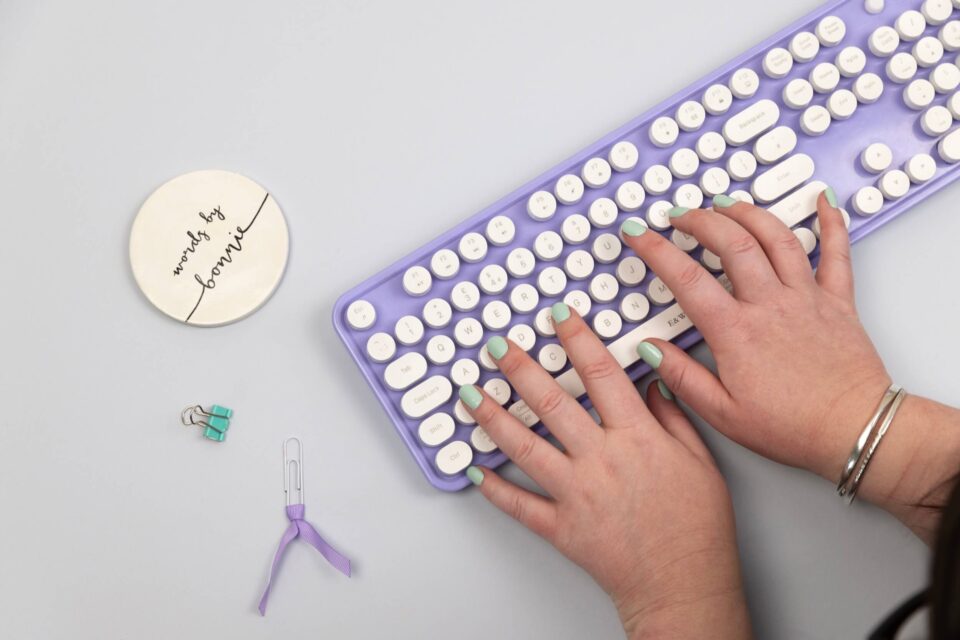
Let’s start positively- here are two reasons small business owners might want to use ChatGPT
You can already tell I’m not a fan. But, even I can accept there are some occasions small business owners might want to use ChatGPT.
- Accessibility
If a small business owner has a particular challenge in writing, such as dyslexia, or ADHD, ChatGPT might help. Starting with some questionable AI writing but then refining it might be an easier process than trying to write from scratch. Sometimes starting with a blank page is a real barrier, and editing something is far easier than getting the words down. - Idea generation
Sometimes it’s extremely hard to think of things to write. It’s also hard to land on one idea when you have loads of options. So, consulting with ChatGPT to come up with article titles or social media captions might be helpful. Anything which makes a business owner’s life easier and cuts down on overwhelm is a good thing. But, as always, these ideas will still need a little polishing…
Honestly, apart from these two things, I really can’t see a benefit to using ChatGPT.
Why is ChatGPT ethically dodgy?
If you’re a small business owner who cares about ethics (I blame Chidi Anagonye) then you should avoid using ChatGPT.
You know what the internet’s like. Pockets of loveliness in a whole heap of steaming… nonsense. You won’t have to search far to find content which is sexist, racist, ableist, etc., and there have been examples ChatGPT producing some stereotypical, problematic stuff.
Such as:
- Here’s a sexist “joke” from ChatGPT from Reddit
- Here’s a LinkedIn post on ChatGPT’s poems about different races
Yes, I know people were using specific prompts to get these dodgy answers. And yes, I know you would never use questionable prompts on ChatGPT.
The bit that concerns me is: what content has ChatGPT been “fed” for it to even be able to come up with these answers? How can we know tell the quality of its sources, or the biases of the information?
And, since we’re on the topic of sources, ChatGPT really isn’t interested in accuracy. It’s been frequently known to be wildly inaccurate. It straight up lies, or ‘hallucinates’ to suit your prompt.
- Here’s a Guardian article about their response to ChatGPT shenanigans
- Here’s a LinkedIn post about the stuff it makes up
Simply, what ChatGPT “writes” is not trustworthy. It doesn’t have the ability to decide if the information it’s giving you is good, or accurate, or feasible.
Sure, it produces 500 words of content in seconds, but you can’t be sure it’s usable. It’ll take hours to edit and research to the point you were confident to publish.
You honestly might as well write something (original, authentic) in your own words.
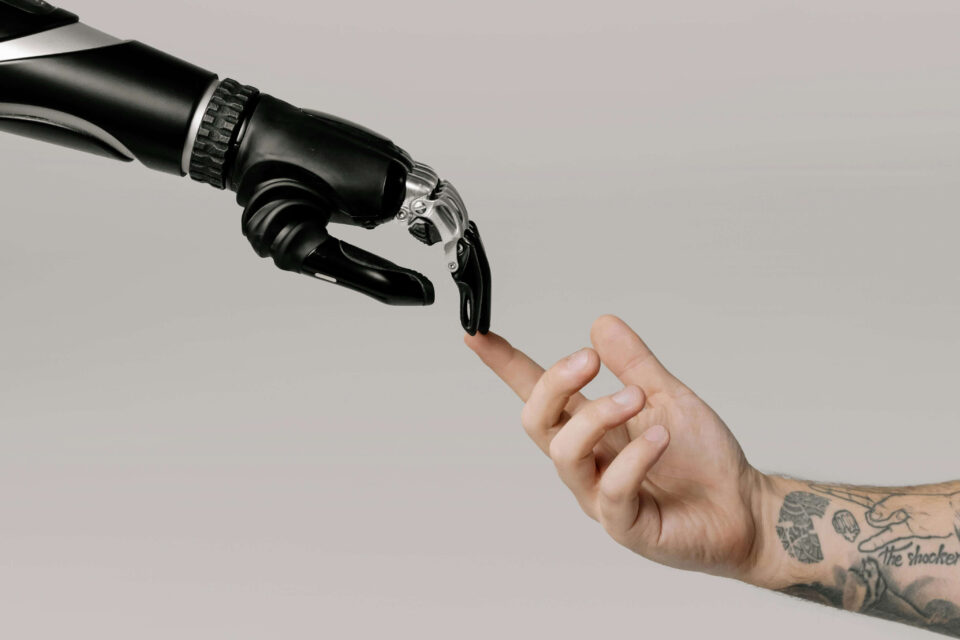
Why does ChatGPT produce bad writing?
ChatGPT can’t write like a human, because it’s not human.
There are lots of factor which affect its output- the source material, your prompts, the variables of the English language, your location. It might be able to come up with a list or some useful bullet points, but when it comes to writing like a human, for a human, it just can’t.
What it produces is waffly, unclear, and generic. It has no clear tone of voice, other than being ‘confidently incorrect’. It’s not warm or funny or edgy or direct. It can be completely incorrect, in both its content and grammar.
- Here ChatGPT adamantly insists there are two ‘r’s in ‘strawberry’ from Reddit
- ChatGPT identifies a symbolic image of Shrek as the Mona Lisa also from Reddit
As a small business, it’s a good idea to prioritise well written content. I don’t mean fancy vocabulary, or beautiful metaphors, or funny similes. They’re nice and all, but what a small business really needs is accuracy, and clarity. Ok, maybe a recognisable tone of voice and a bit of personality is important too. None of these are strengths of our soon- to- be AI Overlords.
Perhaps most unforgivably- ChatGPT is jam- packed, up- to- the- rafters, full of clichés. “When a bot calculates the probability of one word following another, clichés become very likely, because they’ve appeared so many times before”. It’s a tell- tale sign that ChatGPT is the “author” of a piece of writing.
Now, listen, I’ve got nothing against cliches. At the end of the day, in this day and age, a perfectly placed cliché is sometimes just what the doctor ordered, as long as you play your cards right.
But ChatGPT isn’t using them in a clever way.
It’s using them because that’s all it’s got. Making its writing clunky, stilted, and weak AF.
Is using ChatGPT actually… legal?
There are lots of unanswered questions of who owns what ChatGPT produces.
Fine, you’re putting in the prompt, but you didn’t write the response. You didn’t research it or edit it. And… you didn’t pay for it. So, can you really own it?
For example, I research, write, edit, and proofread copy for my copywriting clients. I create entirely original blogs and website copy, exactly as my clients (and Google) want them. And then, they pay me. So, they entirely own what I’ve written. It’s in the contract.
There is no contract with ChatGPT. So, who owns the copyright?
As we know, ChatGPT produces content from what already exists online, so it’s… stealing? It’s a huge issue in education, where AI content rarely passes plagiarism checkers, students are getting into trouble.
“If ChatGPT generates text that is largely similar to a copyrighted source, it could be in breach of copyright law. In addition, there are already examples of ChatGPT defaming individuals, stating they were involved in crimes they did not commit. This could result in legal action for libel.” Which
There have already been some serious legal consequences of using ChatGPT. Until there are answers to who owns the content ChatGPT produces, we’ll be questioning its legality.
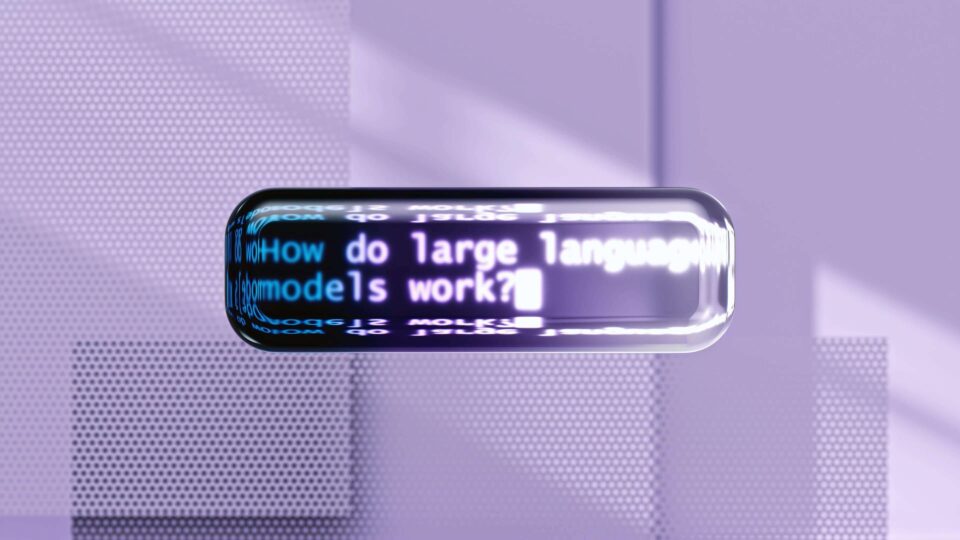
Is using ChatGPT really worth it?
For me, the answer is no. There’s a reason “100% ChatGPT free, always” in my website footer.
Unless you’re using it for an accessibility reason, and then editing it in your own voice- avoid ChatGPT all together.
There are legal, ethical, and environmental concerns in using ChatGPT, not to mention it produces poor quality, inaccurate, and generic writing full of misinformation.
I know you’ll think I’m biased, but I’d always advise a small business owner to hire a copywriter, or work with one, to create authentic, original content for your small business. One detailed, on- brand blog per month is way, way, better than a generic, ChatGPT blog every week.
